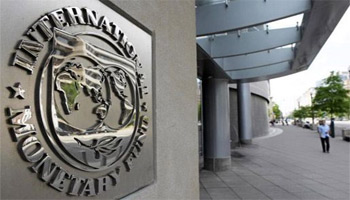Abdelhak Senhadji, Assistant Director of the International Monetary Fund (IMF) Fiscal Affairs Department said that “there is no magic bullet for fiscal policy in Tunisia which suffers from a high debt ratio, in addition to the financial sector problems that require government intervention.”
Speaking to TAP on the sidelines of a press conference Wednesday to present the IMF Global Financial Stability Report, the official recalled that “the co-operation program started last April by Tunisia with the IMF aims to limit inefficient public spending.”
The same program recommends working towards mastering payroll, considered high compared to levels in similar countries.
“It is essential to work for lower wages in the public service, with the aim of increasing the State’s resources and reducing the debt,” he pointed out.
Sanhadji expressed optimism at “the outlook of the Tunisian economy in view of the results recorded in the first co-operation program with the IMF. “What has been done at the political level is a guarantee of security,” said the official.
Vitor Gaspar, Director of the IMF’s Fiscal Affairs Department, presented during the press conference the results of the report that warned against the rise of the global debt of the non-financial sector (government, households, non-financial companies, which (debt) has reached the highest level ever recorded, i.e. 225% of global GDP.
The official added that two thirds of this debt concern the private sector’s commitments that can carry considerable risks.
The process of achieving a high growth rate in indebted emerging countries might require an effective and urgent action to address fiscal imbalances of public banks, the official further said, indicating that this action is a priority in a many European countries and for the private sector.













